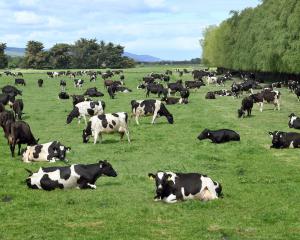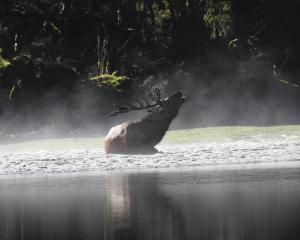
The initiative pairs farm trainers with students on a two-year programme to give them practical skills, training and experience in agriculture.
A rush of 130-plus students aged 16 to 20 applying for positions was reduced to 91 after some were ruled out because they did not have their restricted driver’s licence.
Canterbury, King Country and Otago initially had a shortfall of trainers, with the call going out to muster new recruits.
Farmers responded with 83 farms on board for next year throughout the country. Some will have year one and year two students and a few on the books are taking two year-one students.
That still leaves a few more placements needed and GFF is keen to hear from farmers willing to participate.
The next intake of students starts in January.
GFF programme operations leader Taryn Helm said this was the first year student applications had to be closed, which showed the programme was gaining exposure and students wanted to come on board.
"I think we’ve grown enough and proved ourselves enough that we are in a position to do that, so that’s really good.
"They can come again next year and because they’re living on farms and need to get to trainings and the supermarket they need to have that licence to get themselves around."
She said farm trainers also had to go through a screening process as the programme wanted students in the best learning environments possible.
"We are looking for someone who is passionate about growing young people into the industry and who shows a desire to educate and train.
"They need to be patient and empathetic, which are very good skills to have, and have a willingness to upskill their ownattributes.
"It’s a big benefit for both the farm and the teams. We often hear from farm trainers about how much they are learning as well, after taking on a young person to train."
These farmers had often gone through cadetships themselves or had been mentored and wanted to pass on their knowledge to give back to the industry, she said.
"I think the farmers can see the bigger picture of building the industry as they love it as much as we do and [join because] these guys are being trained by farmers to come out the other end into employment and build that younger generation for the farming industry."
Mrs Helm said some of the students had few options to become part of farming and the programme helped close this gap by finding willing farmers to take them on for two years.
"I think the split is 60:40 so about 60% have had quite a bit to do with farming and the other 40% have had limited experience.
Students live and train on the farm as part of the farm team for the length of the course. Student success advisers work with farm trainers and students to support the training.
Typically, they are on courses one day a week and carry out farm training and building experience four days a week.
Farm trainers host some training for the regional group and attend progress meetings with students and their advisers.
Beef + Lamb NZ national extension programme manager Olivia Weatherburn said it was good to see more host farmers and students taking part in GFF.
"It’s another avenue for students to be able to go to find a pathway which is best for them in a career in the sheep and beef sector. For some of them coming out of school they want to take that practical route and do their learning at the same time."
She said GFF had many great farmer trainers throughout the country.
"From the farmers I have spoken to, they really value having a student on their farm and be able to see them grow from when they first get there and through their first and second year.
"The farmers are a really critical part of the programme by being able to provide that support and guidance and give them that learning experience they require."
She said some of the farmers would have grown up with mentors themselves and could see the merit of passing on knowledge.
"For many of them it’s their chance of being able to ensure they have a growing workforce and they have had an input into and help shape that they know they can use.
"For a lot of these guys they’re going to end up staying in these communities and growing their communities for potentially years to come."
Some farmers had offered students a fulltime position after they completed their course work.
Mrs Weatherburn said
B+LNZ supported training opportunities such as GFF because it was such a good initiative for students and farmer trainers.
"The recent people development award that GFF won at the B+LNZ awards is testament to how far the programme has come and we are a partner with GFF and will be working to support their farm trainers and hosts over the next 12 months to ensure they have the skills to support the students coming through this."
B+LNZ’s vision was to maintain and grow people from year one to year three and ensure they had the right skills, as well as providing farmers with skills to be great employers and trainers, she said.
"I think they learn just as much as each other sometimes as they bring different perspectives because some of these students come from no farming background and they are really green, but they also come with really open minds and that can be an opportunity to give a new perspective of what farming is about ... and some really innovative thinking back to farms."
Meanwhile, Dairy Training’s Next Gen programme also has a group of school leavers ready to join Canterbury dairy farms in early 2025.
The students will complete a hands-on three-week pre-employment programme next month, covering milking, basic stockmanship, vehicle training, and safety skills.
The six-month initiative run by Dairy Training Ltd, a subsidiary of DairyNZ, is designed to help students working 30 to 32 hours a week enter the dairy sector.
Trainees begin working on a farm from January to June and receive weekly training and regular check-ins from their learning adviser to monitor and support their progress.
















